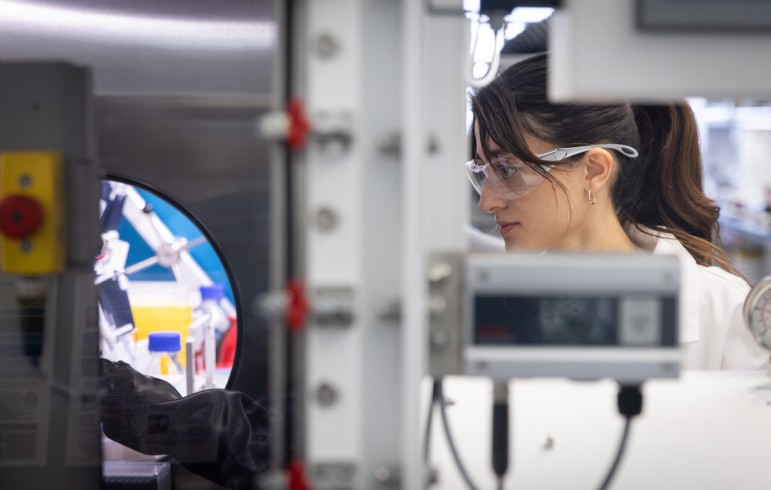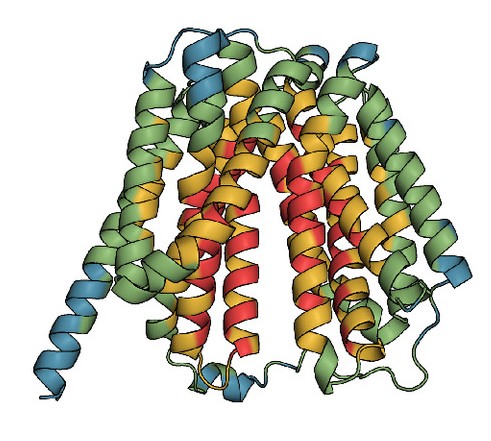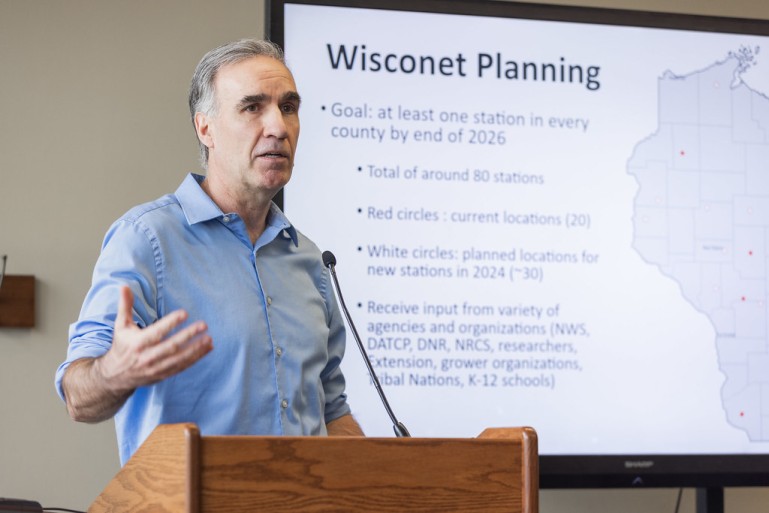If you closed your eyes — and maybe if David Bartling wasn’t trying to shout over the roar of harvesting machinery — you might guess he was talking about his software business or a chemistry lab. Not the weather on the farm.
Efforts to produce sustainable fuels and chemicals from non-food plants focus on lignin, a part of the cell wall that binds together sugars and gives plants structure. Lignin contains ring-shaped molecules known as aromatics that some microbes can convert into chemicals used to make plastics and other products. But breaking this complex matrix — or polymer — into smaller, useful units is challenging.
Brian Fox, Chair of the Biochemistry Department at UW–Madison, has received a fellowship from the Stellenbosch Institute for Advanced Study. His six-month residency will begin July 2026.
Scientists with the Great Lakes Bioenergy Research Center used a systems-level approach to study the microbe’s response to hydrolysate produced from switchgrass treated with a process called ammonia fiber expansion, revealing the hydrolysate triggers a complex stress response in Zymomonas mobilis, causing changes in the membrane that controls what enters and exits the cell as well as how the microbe digests carbon in the plant sugars.
What started as an experiment in carbon capture has spawned a spinoff company that combines two abundant waste streams — carbon dioxide and boiler ash — into a building material that is both stronger and more environmentally friendly than traditional Portland cement.
Wisconet was shortlisted for a Global Hydromet Excellence Award for Best Application of GIS in Meteorology and Climate Services, recognizing the quality of its website and online tools.
Making fuels and other products from plants requires treating the plant fibers to break apart sugars and other parts of the plant cell wall. The leftover liquid (or liquor) from the process must be treated to remove hazardous compounds before it can be safely thrown away. Therefore researchers have explored reusing spent liquor or extracting the organic compounds for use as fuels or industrial chemicals. Here, researchers identified phenolic compounds, a group of ring-shaped aromatic molecules, in spent liquor from a pretreatment process using ammonia dissolved in water.



